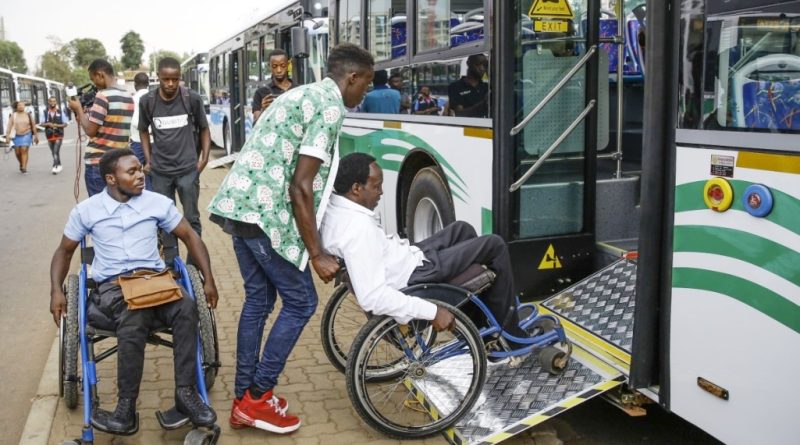Disability groups push for delayed prosthesis insurance coverage
People with disabilities are urging authorities to fully implement a Cabinet decision that approved coverage of prosthetic and orthotic services under Mutuelle de Santé, Rwanda’s community-based health insurance scheme. They say the delay is leaving many without access to essential medical devices that could transform their mobility and quality of life.
Prostheses—artificial body parts such as limbs—replace missing or damaged body parts, while orthoses are devices that support, align, or correct movement in weak or injured limbs. Both are vital for people living with disabilities, but they come at a steep cost.
According to the National Council of Persons with Disabilities (NCPD), a prosthesis can cost between $468 and $936 depending on the type—well beyond the reach of most patients.
Isaac Rukundo, Head of the Prosthetics and Orthotics Department at HVP Gatagara, a specialised hospital for persons with physical disabilities, said implementation of the long-awaited insurance coverage has stalled.
“A Cabinet decision was made for Mutuelle de Santé to cover up to 90 percent of prosthetic and orthotic services, but this is not yet being enforced. The Rwanda Social Security Board (RSSB) has yet to roll out the directive,” Rukundo explained.
The services were expected to be covered starting in July this year. However, when new hospital tariffs were released, prosthetic and orthotic services were not included—despite having been approved in a Cabinet meeting in January.
Following that meeting, the Ministry of Health announced that 14 new services would be added to Mutuelle de Santé. These included cancer treatment and medications, knee and hip replacement surgeries, and provision of prosthetic and orthotic devices.
RSSB assures beneficiaries
Regis Hitimana, Chief Benefits Officer at RSSB, said some of the newly approved services are already being implemented. He cited knee and hip replacements as examples where preparations had been underway long before the reforms, making it easier to establish sustainable supply chains for implants.
He added that cancer medications will also soon be covered under the national programme, with procurement managed by Rwanda Medical Supply Ltd (RMS). “Very soon, more public health facilities will be able to access these medicines through the RMS supply chain,” he said.
But questions remain about why prosthetic and orthotic services are not yet included. For people with disabilities, this delay represents not just a gap in healthcare but also a barrier to dignity, independence, and inclusion.
As advocacy continues, many hope the government will move swiftly to ensure that life-changing devices like prostheses and orthoses are no longer out of reach.
@Nkurunziza Michel/New Times




